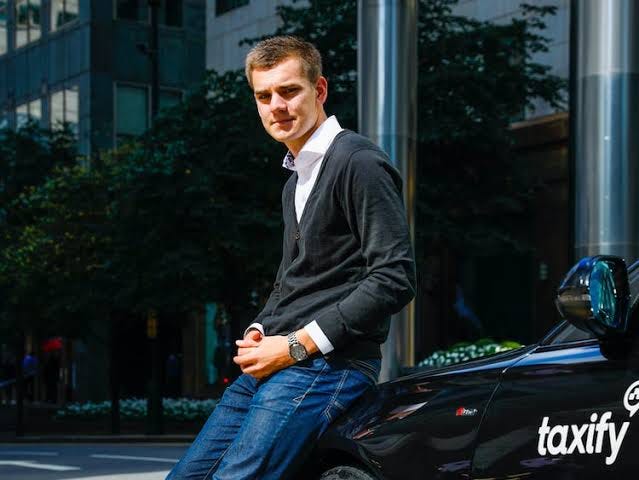Mobility startups in Africa are in for a rollercoaster ride as a leading player in the African digital mobility sector, Estonia-headquartered Bolt (formerly Taxify) has just raised another $182 million to tackle its African market.

“This round was the first time we raised with most of the previous round still in the bank, despite the pressures of Covid” he said. “This shows the frugality of the company. Due to lockdowns, we were not as aggressive as we would have liked to be, so financially we are now in a very good position for 2021,” comments 25-year-old Markus Villig, CEO of Bolt.
Here Is What You Need To Know
- The round is being led by D1 Capital Partners with participation also from Darsana Capital Partners.
- Barely 7 months ago in May, Bolt raised $109 million to tackle its African market, putting the company at a valuation of $1.9 billion
- The latest investment brings the startup’s total financing to more than $511 million.
- Launched in 2013 by Martin and Markus Villig under the name Taxify, Bolt is developing numerous mobility services (VTC, motorcycle taxis and even free-floating electric scooters), in more than 200 cities across 40 countries in Europe and Africa. The startup currently serves 50 million customers using its services.
- Faced with the Covid-19 pandemic and the ensuing containment measures, the startup has stepped up its meal delivery service, Bolt Food, now available in 12 countries.
- Rather concentrated in Eastern Europe and Africa, Bolt is gaining ground in markets where its competitor Uber is less present.
- The Tallinn-based startup has also launched a new service for merchants. Called Business Delivery, it offers restaurants, supermarkets and florists a delivery service to cover the last kilometer and manage returns of items, using the Bolt network of drivers and couriers.
- To comply with social distancing measures, the startup has also launched a new category of hybrid bikes equipped with dividing walls between the passenger and driver seats.
“We are excited to partner with Bolt as they continue to build a market-leading mobility platform across Europe and Africa,” said Dan Sundheim, founder of D1 Capital, in a statement. “The team has executed incredibly well during a challenging year and continues to provide millions of users with safety, flexibility and great value. We are optimistic about the growth opportunity ahead for Bolt after the COVID-19 pandemic and look forward to supporting the team as they invest in innovation over the coming years.”

In the African mobility market, Bolt is a major player
Read also: Why Startup Ecosystem in Africa’s French-Speaking Countries Is The Least Funded In Africa
A Look At Markus Villig, CEO of Bolt, Who At Just 19, Started Of One Of The Leading Mobility Startups Focused Mostly On Eastern Europe And Africa.
- According to CNBC News, at age 19, Villig dropped out of college after just one semester studying computer science at the University of Tartu, in Estonia, as his ride-hailing app, Taxify (now known as Bolt), began to take off.
- Villig started the business with a 5,000 euro ($5,565) loan from his family to build a prototype of the app, the summer after graduating from high school.
- He was inspired by Skype, which was founded in his home country of Estonia in 2004, showing a technology business “could be launched from anywhere.”
“I realized that tech is one of those industries where you can have huge leverage in the fact that you can accomplish big things with a very small team,” he told CNBC.
- Villig said he remained disciplined with business costs by avoiding “hiring loads of people or doing expensive marketing campaigns.”
- In fact, Villig took to the streets himself in Estonia’s capital Tallinn to recruit taxi drivers in the early days of the business.
“Ultimately it comes down to being extremely customer focused and frugal,” he said. “This is an industry where customers really care if they get good value for their money,” he adds. “So if you can offer customers 20% better pricing or you can make sure the drivers take 20% more on every ride then that really pays.”
- Finding a focus is Villig’s biggest tip for anyone launching a start-up.
“As an entrepreneur you sometimes get thousands of ideas that seem great and you want to do them all, but ultimately you can only do a few things really well,” he says, explaining that this was why Bolt solely focused on ride-hailing for its first five years in operation.
About rebranding earlier in 2019 from Taxify to Bolt, to reflect its branching out into other areas of mobility, Villig has this to say:
“My advice to young entrepreneurs would be to choose a name that reflects the vision you have for your business and not to be afraid to change that name if your vision gets bigger.”
Charles Rapulu Udoh

Charles Rapulu Udoh is a Lagos-based lawyer who has advised startups across Africa on issues such as startup funding (Venture Capital, Debt financing, private equity, angel investing etc), taxation, strategies, etc. He also has special focus on the protection of business or brands’ intellectual property rights ( such as trademark, patent or design) across Africa and other foreign jurisdictions.
He is well versed on issues of ESG (sustainability), media and entertainment law, corporate finance and governance.
He is also an award-winning writer
